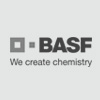- Description
- Specifications
Catalog #: PRO-399
Description:
CABP9K (CALB3 or CABP1; mouse, rat, and human 79 aa; chromosome Xp; ~9 kDa) is a cytosolic Ca-binding protein initially found in rat pancreas. It is also expressed in intestine, placenta, uterus and kidney. Its expression is controlled by vitamin D and sex hormone in a tissue specific manner. In keeping with its role in Ca-transport, its expression is highest in duodenal villus enterocytes. It is further shown that CABP9K is only expressed in differentiated enterocytes. CABP9K gene also contains Cdx2-homeoprotein binding sites, and that Cdx2 may play a crucial role in CABP9K transcription.
CaBP9K is expressed with a -6xHis tag and purified by proprietary chromatographic techniques.
Synonyms:
Protein S100-G, S100 calcium-binding protein G, Vitamin D-dependent calcium-binding protein intestinal, CABP, Calbindin-D9k, 9 kDa CaBP, Cholecalcin, S100g, Calb3, S100d, Cbpi, MGC72928, Rncalbd9.
Source:
Escherichia Coli.
Purity:
Greater than 90% as determined by SDS-PAGE.
Solubility:
It is recommended to reconstitute the lyophilized CABP9K in sterile 18MΩ–cm H2O not less than 100 µg/ml, which can then be further diluted to other aqueous solutions.
Formulation:
The protein was lyophilized from a concentrated solution (1mg/ml) containing 100mM Phosphate buffer, pH 7.3.
Stability:
Lyophilized CABP9K although stable at room temperature for 3 weeks, should be stored desiccated below -18 °C. Upon reconstitution CABP9K should be stored at 4 °C between 2-7 days and for future use below -18 °C. For long term storage it is recommended to add a carrier protein (0.1% HSA or BSA).
Please prevent freeze-thaw cycles.
Physical Appearance:
Sterile Filtered White lyophilized (freeze-dried) powder.
Usage:
Denovo Biotechnology's products are furnished for LABORATORY RESEARCH USE ONLY. The product may not be used as drugs, agricultural or pesticidal products, food additives or household chemicals.
















